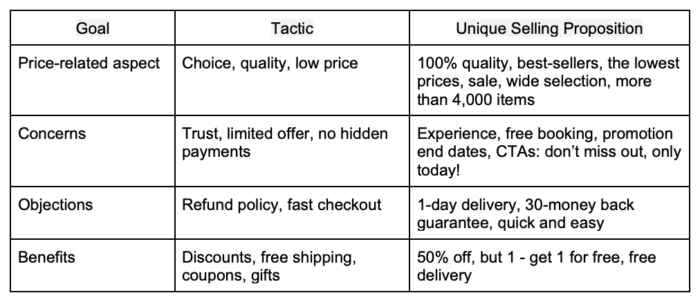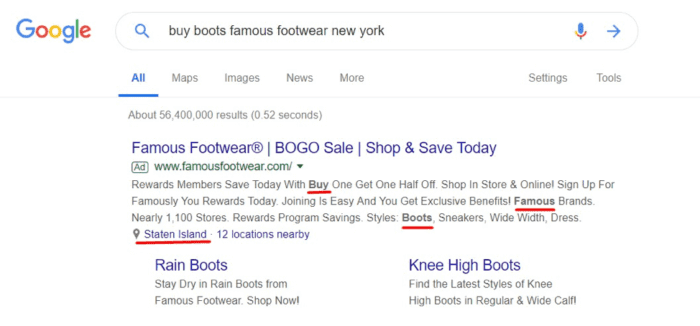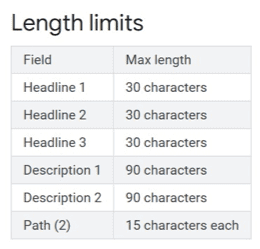A scientific approach to writing paid search ads can be beneficial to creating effective ads
The ever-changing parameters of search engine marketing are no secret. It can be time-consuming to keep up with the latest trends in the industry, making it important to be efficient while writing quality and catchy ads. A scientific approach to writing paid search ads can be beneficial to creating effective ads for yours or your client's site. Below I explain the steps to take to follow a scientific approach for PPC.
Download our Free Resource – Google Analytics Fast Start - 10 mistakes to avoid
This Free guide brings together a series of common mistakes that we have seen made by both experienced and new Google Analytics alike, grouped into 10 easily identifiable areas.
Access the
Use science when in a situation of uncertainty
Conversion optimization is what inspires advertisers. Before creating a PPC ad that brings your target audience to make a purchase, it’s vital to understand the customer first.
The experts of MECLABS Institute have come with the following formula for conversions:

Make sure to pay attention to the following parameters, and try to cover them within your ad texts:
- The users’ incentive to take action - when exactly they are willing to pay (i).
- Clarity of the value proposition -why the users should settle on your company, and you offer.
- The impetus to take action without any restraints (i-f).
- The users’ willingness to share/provide personal information to complete a purchase.

Los Angeles Luxury New Homes is an excellent example of targeting the right buyer persona - best designs, exclusive communities, and luxury.
Thus, to create ads with call to actions, I recommend focusing on each formula parameter separately. Using a table could be a great way of collecting your ideas.

By using a table like the one above, you will have a clear picture of what should be included in your ad.
Below is what an ad written according to the table would look like:

Brainstorming
Brainstorming is crucial when creating a new PPC ad. I offer three ways of generating new creative search ads.
Investigate
Study your potential customer, their needs and pains. For that, use surveys, polls or ask the customers directly. Thus, you’ll get to find out:
- How does your product/service help the customers?
- What exactly motivates them to buy what you are selling?
- What are the most frequent questions shoppers ask?
- What are the major complaints?
- What does the competition offer?
- Is there other target audience your product/service could be interested in?
Here, it’s critical to attempt maximally accurate and irrefragable answers. They will be used within the future PPC ads texts, as well as determine the choice of visual creatives.
Exercise your creativeness
Sometimes stepping away from the computer and brainstorming offline is beneficial. It allows you to be more creative and might spark a fresh idea. Once you feel like you’re out of ideas, then go through and structure your thoughts, organizing them based on the categories we’ve highlighted above.
Generate a final ad
How do you feel about editing? At this point, try to choose a couple of ads you like the most. Then, start reviewing by going from the general to the specific. That’s the most critical part when creating expanded text ads. Thus, you get to combine different parts of the text and decide where to include them.
This will also come in handy when adapting your PPC ads for different types of devices they will be displayed on.
Only now, when done with the creative part of ads text creation, can you get back to your Excel, Google Sheets document and use them for data collection and reports.
Never cut corners on creativity - such ads have been proved to pay off.
4 rules for writing a PPC ad
After brainstorming, it’s time to get your ideas to fit within the requirements. These are the rules I usually follow:
1. Utilize highlights
The heading is the first and most crucial element of any PPC ad. Generally, it is what a searcher sees first and will determine if they will click on the ad.
A title with maximum possible highlights makes the ad more visible and thus, more attractive. Let me explain, if the entered keyword by a searcher is present within an ad, it’ll be highlighted/bolded:

This is why using one keyword for one ad set could be a great idea. This allows you to achieve an exact match either within your ads’ titles or the ads’ text.
For more proper PPC keywords research, I’d strongly recommend using one of the trusted SEO platforms, such as Serpstat. With its help, you’ll be able to conveniently track CPC cost, competitor’s ads, top ads, and the used keywords. This way, you get to both hold your competitors closer and generate keywords-rich advertising.

2. Be sharp and brief
Your ads’ text must be understandable and straightforward. Usually, an ad includes around four short sentences. All long sentences must be concise.

According to the official documentation, currently, Google Adwords allows "adding a third headline and a second description, as well as use up to 90 characters for each description". The expanded ads introduce more room for the advertisers’ creativity indeed.
3. Use numbers
Besides saving you a couple of symbols, numbers make your text ads more readable. Visually, they make the text easier to acquire.

3. Include CTA
From the language perspective, CTAs are brief. When used in ads, they are great to motivate your sales to funnel and boost the success of getting a click from future customers.
Shop now! See pricing! Visit now! Get a quote!

Bottom line
Bad ad texts can kill any PPC program, no matter how stellar it may be. Hopefully, this piece brings you closer to sharpening your ad writing skills.
Inna Yatsyna is a Brand and Community Manager at
Serpstat, an all-in-one SEO platform. Inna is experienced in digital and content marketing, along with SEO. She’s fond of writing useful posts, helping people, reading, traveling, and animals (especially dogs).















